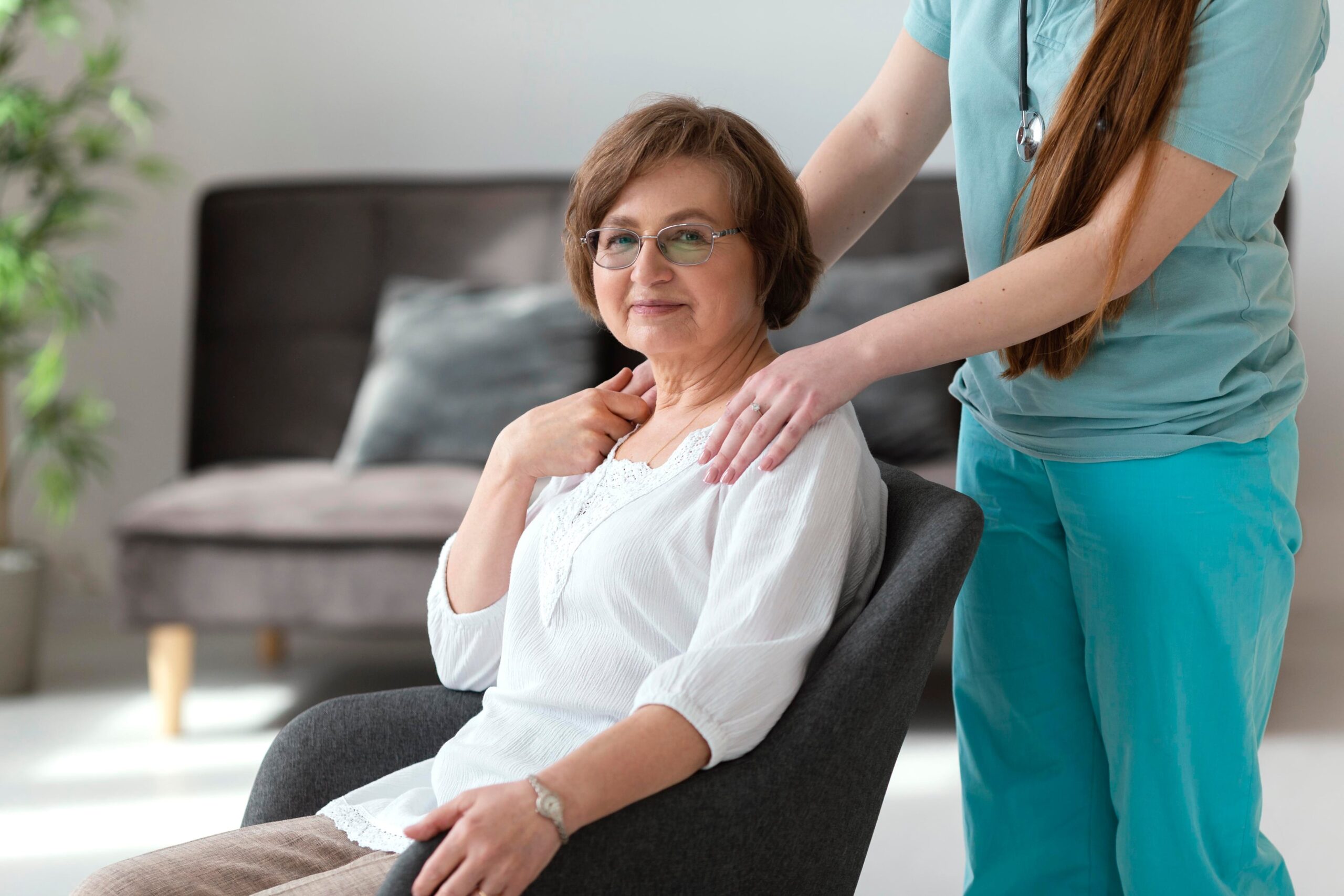The Challenges of Summer for Seniors
Summer brings longer days, warmer weather, and a host of outdoor activities to enjoy. However, for seniors, the summertime can also present unique health challenges. Moreover, with the rise of heatwaves across the globe, summer time can be a more dangerous time than ever.
As we age, our bodies become more sensitive to temperature changes, and certain health conditions can be exacerbated by the heat. By taking some proactive steps, seniors can safely enjoy the summer months while protecting their health.
Why Heat Sensitivity and Sun Exposure Are Dangerous for Seniors
As we age, our bodies become less efficient at regulating temperature. Seniors may not feel as thirsty as they did when they were younger, which can lead to dehydration. They are also more susceptible to heat exhaustion and heat stroke, which can be serious and even life-threatening. One study shows that the highest risk for seniors in heat exposure is misjudgment of how dangerous heat can really be. Therefore, taking care to educate yourself and your elderly loved ones is the first step in avoiding these dangers.
Prolonged exposure to the sun can increase the risk of skin cancer, especially for seniors who may have spent many years in the sun without the protection we now know is essential. The aging skin is also more fragile and prone to sunburn.
Chronic Conditions, Mobility, and Hydration
Many seniors manage chronic health conditions like diabetes, heart disease, or respiratory issues, which can be aggravated by high temperatures. Certain medications can also affect the body’s ability to handle heat.
Limited mobility can make it harder for some seniors to move to cooler environments or to access fluids as needed. Dehydration is a common issue during the summer, which can lead to confusion, urinary tract infections, and other health problems.
Tips for Staying Safe and Active in the Summer For Seniors
Physical activity is important for maintaining health, but it’s crucial to adjust activities during the summer. Early morning or late evening walks, swimming in a cool pool, or participating in indoor exercises can help seniors stay active without overheating.
Stay Hydrated and Stay Cool
Drinking plenty of water is crucial during the summer months. Seniors should aim to drink water throughout the day, even if they don’t feel thirsty. Avoid alcohol and caffeine, as these can contribute to dehydration. Keeping a water bottle handy is a simple way to remind yourself to sip regularly.
Seniors should try to avoid outdoor activities during the hottest parts of the day, typically between 10 a.m. and 4 p.m. If going outside is necessary, seeking shade or using a portable fan can help stay cool. At home, using air conditioning or fans, keeping curtains closed during peak sunlight, and taking cool showers are effective ways to maintain a comfortable indoor temperature.
Dress Appropriately and Plan for Travel
Light-colored, loose-fitting clothing made from breathable fabrics like cotton can help keep the body cool. Wearing a wide-brimmed hat and sunglasses offers additional protection from the sun’s rays. It’s also wise to apply sunscreen with at least SPF 30 to protect against sunburn and skin damage.
Many seniors enjoy traveling in the summer, but it’s important to plan ahead. Ensuring accommodations have air conditioning, packing plenty of fluids, and scheduling activities during cooler parts of the day can help make travel enjoyable and safe.
Be Aware of Heat-Related Illnesses and Monitor Medication
Understanding the signs of heat exhaustion and heat stroke is essential. Symptoms of heat exhaustion include heavy sweating, weakness, dizziness, nausea, and headache. Heat stroke is more severe and can include confusion, loss of consciousness, a rapid pulse, and hot, dry skin. If any of these symptoms occur, it’s important to seek medical attention immediately.
Certain medications can affect how the body responds to heat. Seniors should talk to their healthcare providers about any medications they are taking and understand the potential side effects in hot weather. It may also be necessary to adjust dosages or take special precautions when temperatures rise.
Check on Your Senior Loved Ones in the Summer
Family members and caregivers should regularly check in on seniors during the summer months, especially during heat waves. A quick phone call or visit can ensure that they are staying cool and hydrated, and aren’t experiencing any heat-related symptoms.
Enjoying the Summer in a Healthy Way
Summer is a time to enjoy the outdoors, connect with family and friends, and embrace the longer days. With the right precautions, seniors can fully enjoy this season while staying safe and healthy. By staying hydrated, avoiding excessive heat, and being mindful of sun exposure, seniors can make the most of summertime without compromising their well-being. Remember, a little preparation goes a long way in ensuring that summer remains a season of fun and relaxation, no matter your age.
If you or a loved needs assistance with activities in the summer, including meal prep or other types of personal assistance, get in touch with a professional at Heavenly Care today.
